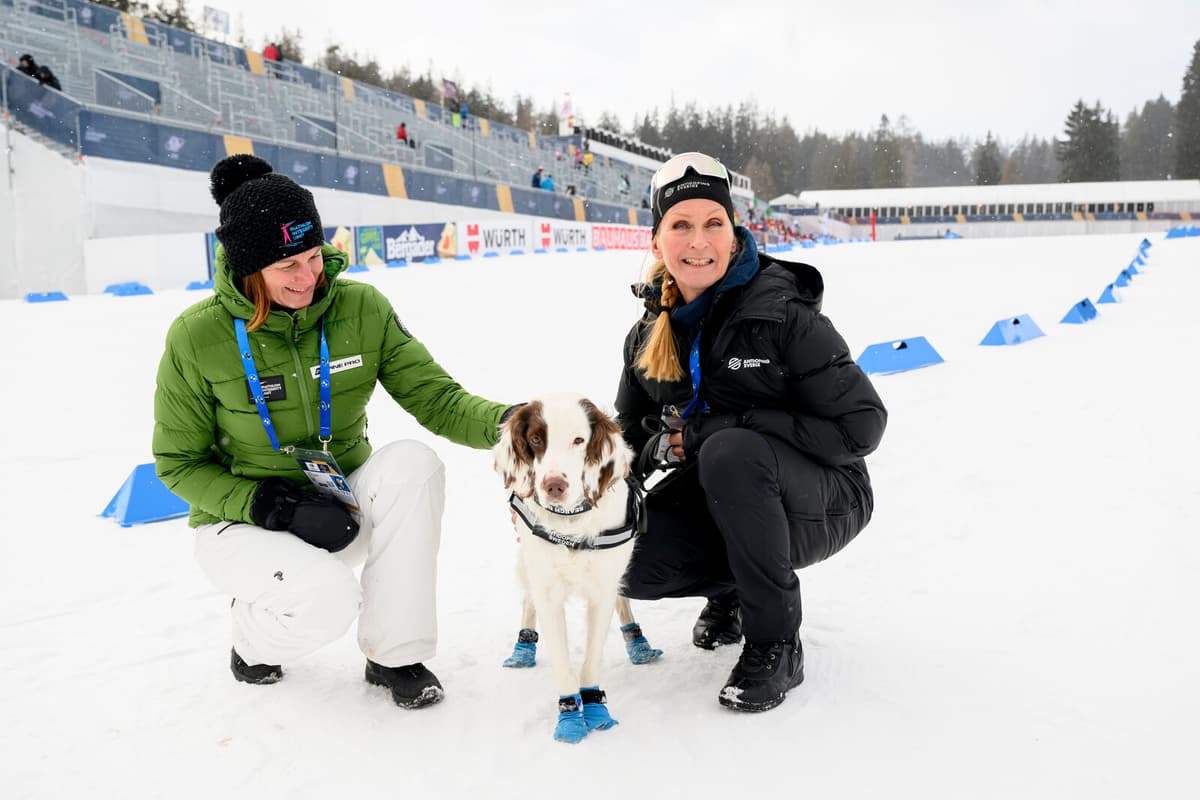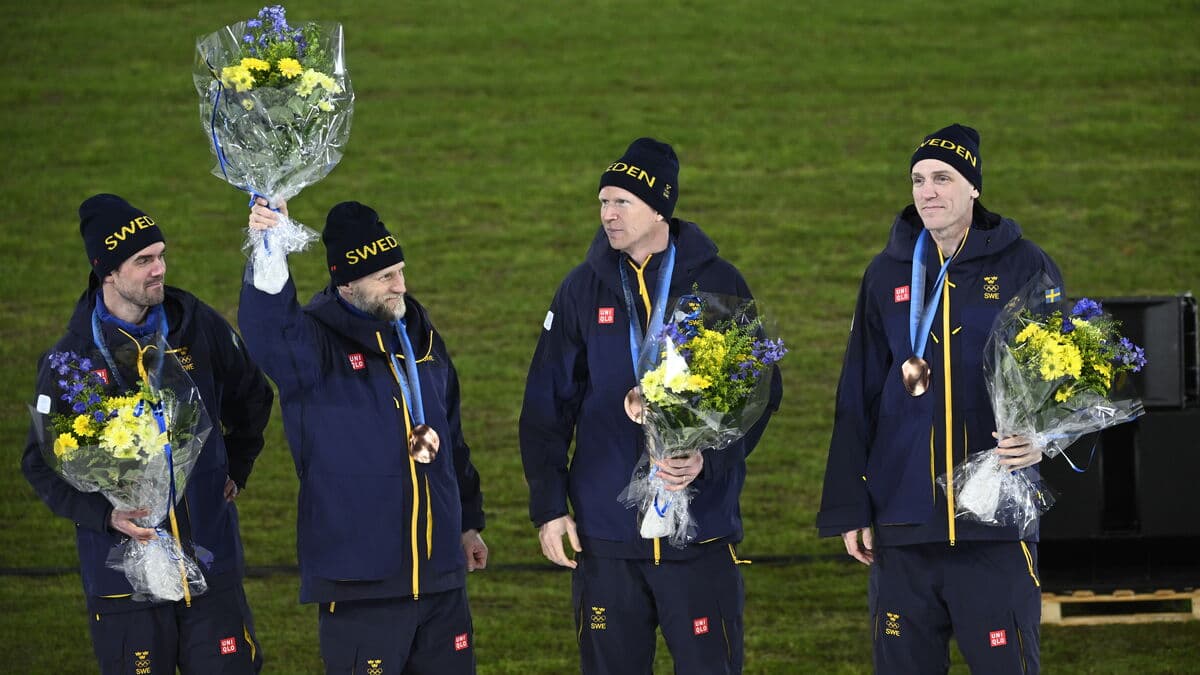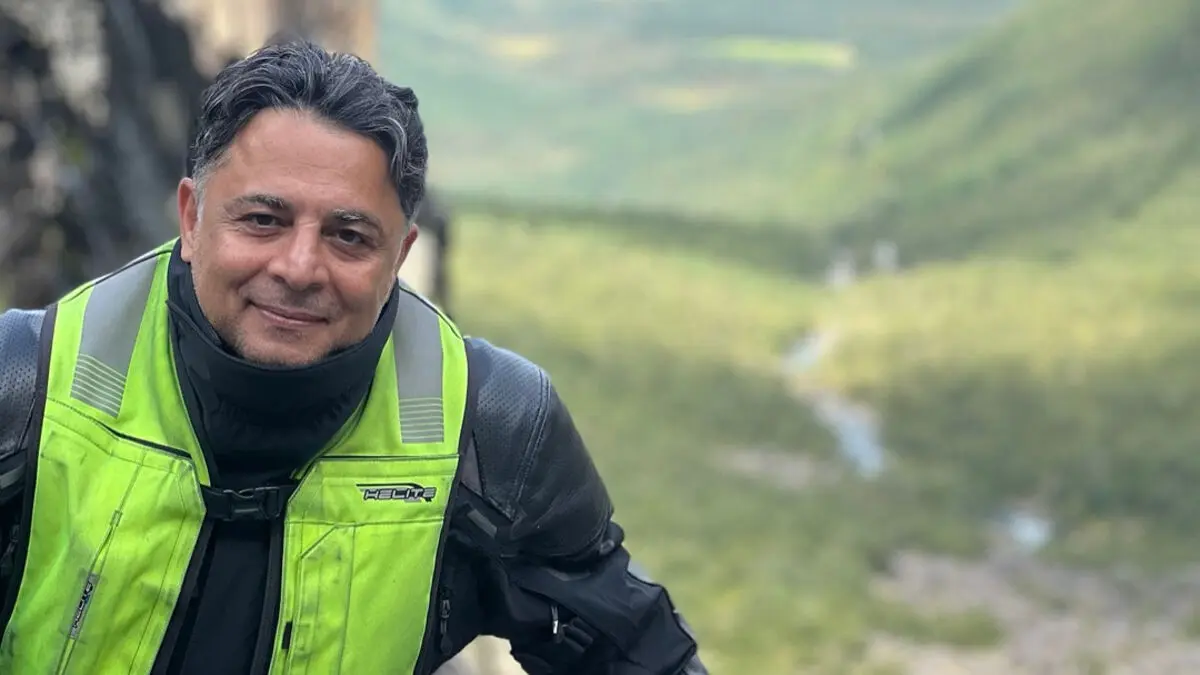The ten-year-old springer spaniel is the world's only doping dog classified. She has been trained by the Swedish customs to detect doping substances.
We only go out with two preparations out of several that she takes, of course testosterone and anabolic steroids. To make it more difficult, we have chosen to keep the others to ourselves, says Molly's dog handler Joanna Sjöö.
The team works for Anti-Doping Sweden to test and search for doping substances in sports in Sweden. They are also lent out to international sports and have, among other things, the International Biathlon Union's anti-doping operation Biathlon Integrity Unit (BIU) as a major client. Molly and Joanna Sjöö travel to various World Cup competitions and IBU competitions, and this year they are at a World Championship for the first time, in Lenzerheide, Switzerland.
It's not just about her searching. Molly is also here both preventively and perhaps a little deterrent for someone, says Sjöö.
When we are on site, we send signals that we want a doping-free sport.
Prevention is important
Joanna Sjöö explains that the mission during the World Championship, of course, is about searching for doping substances in different places, but the preventive work is just as important. The team moves among active athletes and leaders who gladly come forward and take selfies with Molly, and at the same time receive information about the sport's anti-doping work.
It's extremely important that we educate our athletes, says Sjöö.
Sjöö cannot reveal details about how they work in the search operation, but Lucie Rothauer, prevention manager at BIU, lets it be understood that the dog team moves around in many different places. Sometimes they sneak around unnoticed to search, sometimes they move more openly.
"Can't lean back"
Rothauer says that biathlon has not had any doping cases in recent years.
But you never know, and we can't just lean back and say there are no problems. It's important to be proactive, not just take tests but do other things too. There's a lot of preventive work. We want our athletes and coaches to feel safe, says Rothauer.
Sjöö says that Molly loves her job.
It's the most fun she knows, says Sjöö.
The Swedish Anti-Doping Agency Anti-Doping Sweden decided in 2017 to acquire a detection dog. The Swedish customs were commissioned and bought Molly, aptitude-tested her, and trained her according to the customs' guidelines, just like for drug-sniffing dogs.
Joanna Sjöö has worked for many years as a doping control officer and is now employed by Anti-Doping Sweden as a dog handler in the detection dog operation. She and Molly work as a team.
In Sweden, the dog team works with testing and searching for doping substances in sports that are part of the Swedish Sports Confederation.
They are sometimes hired out to international assignments, and apart from a larger contract with Biathlon Integrity Unit, Molly and Joanna Sjöö have had several international detection assignments in, for example, athletics, powerlifting, and weightlifting. Molly has on several occasions made markings that have subsequently resulted in positive doping tests, Sjöö has previously told TT.
Molly has an Instagram account, @dopinghundenmolly, where pictures from assignments are posted.






